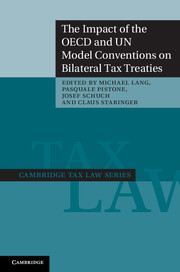Book contents
- Frontmatter
- Contents
- Contributors
- Preface
- Table of cases
- Table of statutes
- General report
- 1 Argentina
- 2 Australia
- 3 Austria
- 4 Belgium
- 5 Brazil
- 6 Canada
- 7 Chile
- 8 China
- 9 Colombia
- 10 Croatia
- 11 The Czech Republic
- 12 Estonia
- 13 Finland
- 14 France
- 15 Germany
- 16 Hong Kong
- 17 Hungary
- 18 India
- 19 Italy
- 20 Lebanon
- 21 Liechtenstein
- 22 The Netherlands
- 23 New Zealand
- 24 Norway
- 25 Peru
- 26 Poland
- 27 Portugal
- 28 Romania
- 29 The Russian Federation
- 30 Serbia
- 31 Slovakia
- 32 Slovenia
- 33 Spain
- 34 Sweden
- 35 Uganda
- 36 The UK
- 37 The USA
- Index
- References
37 - The USA
Published online by Cambridge University Press: 05 November 2014
- Frontmatter
- Contents
- Contributors
- Preface
- Table of cases
- Table of statutes
- General report
- 1 Argentina
- 2 Australia
- 3 Austria
- 4 Belgium
- 5 Brazil
- 6 Canada
- 7 Chile
- 8 China
- 9 Colombia
- 10 Croatia
- 11 The Czech Republic
- 12 Estonia
- 13 Finland
- 14 France
- 15 Germany
- 16 Hong Kong
- 17 Hungary
- 18 India
- 19 Italy
- 20 Lebanon
- 21 Liechtenstein
- 22 The Netherlands
- 23 New Zealand
- 24 Norway
- 25 Peru
- 26 Poland
- 27 Portugal
- 28 Romania
- 29 The Russian Federation
- 30 Serbia
- 31 Slovakia
- 32 Slovenia
- 33 Spain
- 34 Sweden
- 35 Uganda
- 36 The UK
- 37 The USA
- Index
- References
Summary
The relevance of the OECD and UN Model Conventions and their Commentaries for the interpretation of US tax treaties
General comments
The USA is currently a party to about sixty bilateral double income tax treaties that apply with respect to approximately sixty-five countries (because the old treaty with the USSR continues to apply to certain members of the Commonwealth of Independent States).
The USA has a rather peculiar history with the development of model treaties within the framework of the OECD and the UN. A US professor was one of the team of international tax experts that developed the famous study of international tax policy under the auspices of the League of Nations, even though the USA never became a member of that organization. US representatives and experts have been heavily engaged in the development of model treaties by both the OECD and the UN. However, the US Treasury has declined fully to embrace either Model as the basic treaty negotiating position of the US government when endeavouring to establish double tax treaties with potential and existing treaty partners.
The attitude of the US government in this respect is not unique to tax treaty matters. The phenomenon is sometimes referred to critically as ‘US exceptionalism’. For example, US members of the International Law Commission were deeply involved in the negotiation of the Vienna Convention on the Law of Treaties (Vienna Convention) and consulted regularly with attorneys and other officials of the US government. However, the USA has never acceded to the Vienna Convention and is not a party to it. Nonetheless, US representatives have sometimes made reference to the Vienna Convention on the ground that, at least in certain situations, it represents the ‘best evidence’ of customary international law with respect to treaty interpretation and administration. As indicated later in this chapter, such a position is similar to pronouncements made periodically with respect to the US attitude to the model treaties developed by the OECD and the UN.
- Type
- Chapter
- Information
- Publisher: Cambridge University PressPrint publication year: 2012

